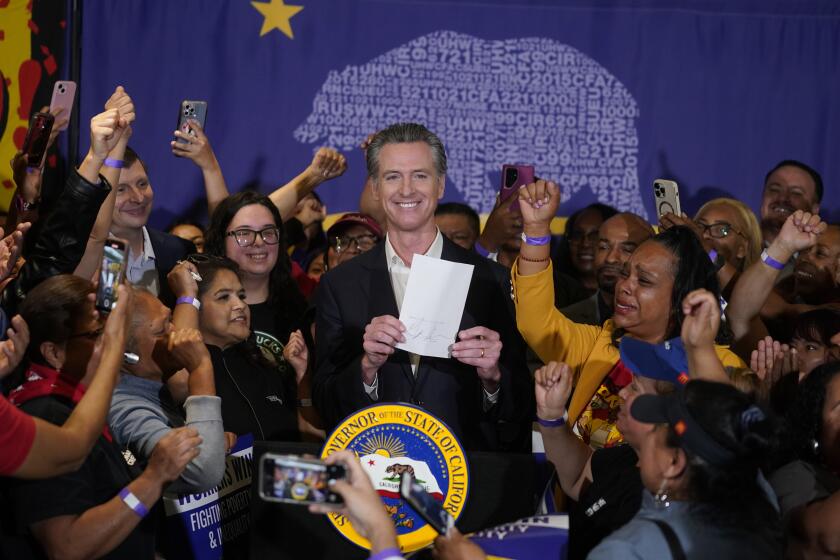California’s new minimum wage law, signed by Gov. Gavin Newsom in September, raised the minimum wage in the fast-food industry to $20 an hour from $16. The California Business and Industrial Alliance claimed in an ad that nearly 10,000 fast-food jobs had been lost in the state since the law was signed, attributing the job cuts to the minimum wage increase. However, from September through January, fast-food employment in California actually increased, as reported by the Bureau of Labor Statistics and the Federal Reserve. Despite this, the claim that jobs were lost due to the minimum wage law has circulated in the business press and conservative media.
The cost of labor is just one of many expenses that restaurant owners must handle, with rising food costs being a significant challenge. Companies like Chipotle Mexican Grill, El Pollo Loco, and Rubio’s Coastal Grill have all faced different financial challenges, with Rubio’s attributing the closing of 48 California restaurants to the rising cost of doing business in the state. High debt, often a result of private equity takeovers, has also played a role in the struggles faced by some restaurant chains. The assertion that job losses in California’s fast-food restaurants are solely due to the new minimum wage law is not accurate.
The claim of nearly 10,000 lost fast-food jobs due to the minimum wage law was used as a basis for criticism by restaurant lobbyists and in an article by UCLA economics professor Lee E. Ohanian. These figures were based on non-seasonally adjusted data, and thus did not provide an accurate representation of the employment trends in the fast-food industry in California. Seasonally adjusted figures show that employment in the limited-service restaurant sector, which includes fast-food establishments, actually rose in the months following the minimum wage increase.
Restaurant lobbyists and media outlets neglected to consider the seasonal fluctuations that are typical in the restaurant industry when analyzing the purported job losses in California’s fast-food sector. The misleading narrative that blamed job cuts on the minimum wage law failed to take into account the known patterns of employment in the industry, which peak in September and then decline through January annually. While higher labor costs due to the minimum wage law may present challenges for fast-food companies, the claim that job losses were solely attributed to this law is inaccurate.
The author of the Wall Street Journal article highlighting the job losses in the fast-food industry did not respond to inquiries about the use of non-seasonally adjusted figures. The founder and president of the California Business and Industrial Alliance also did not comment on the inaccuracies in the claims made in the ad. UCLA economics professor Lee E. Ohanian acknowledged the need for seasonally adjusted data when analyzing employment trends and noted that the industry may struggle if faced with large food cost increases. It is essential to consider all factors, including seasonality and rising expenses, when assessing the impact of new legislation on job losses in the restaurant industry.


